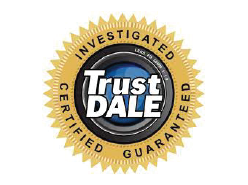
The automotive buying journey has evolved dramatically in recent years. In 2022, car buyers were found to spend an average of 7 months researching their options, a significant increase from 2.7 months in 2017. This trend extends to service centers, where consumers are increasingly relying on online reviews and price comparisons before making decisions.
Transparency and responsiveness across various communication channels, including chat, text, email, and phone calls, are now essential in engaging automotive consumers. As Jessica Stafford of Autotrader and Kelley Blue Book notes, providing upfront information and answering questions through these channels is crucial to attract and retain customers.
Automotive BDC (Business Development Center) teams are augmenting their outreach by leveraging AI and advanced technologies to ensure quality conversations.
It’s vital for dealerships and service centers to track every interaction in the buying journey. While online experiences are often monitored through web analytics tools, and in-person visits like test drives and maintenance appointments are recorded, the phone call experience is frequently overlooked. Studies show that a significant portion of automotive consumers make phone calls during their buying journey, making it a critical touchpoint for understanding customer needs.
Given that car buyers spend months researching and often interact across various channels, maintaining a consistent marketing approach across these touchpoints is essential. Segmenting audiences based on website interactions and tailoring marketing efforts to reflect these interactions can create a more cohesive and effective customer journey.
Phone calls remain a key component of the automotive buying journey. Implementing intelligent call routing and providing agents with insights about the caller’s previous interactions can significantly enhance the call experience. This approach ensures that each caller is directed to the most appropriate agent or location, improving service quality and efficiency.
Regular quality assurance is necessary to maintain high standards in customer phone interactions. Automated call quality assurance can help scale this process, providing objective and comprehensive performance assessments. This technology allows for more focused agent coaching, leading to improved customer interactions.
Optimizing customer experience is an ongoing process that requires continuous adaptation and improvement. Satisfaction surveys and advanced analytics tools can provide valuable insights into customer preferences and pain points, guiding enhancements in service and marketing strategies.
After a purchase or service, the focus should shift to nurturing long-term customer relationships. Integrating insights from all customer touchpoints, including phone calls, into customer relationship management systems ensures a comprehensive understanding of each customer’s preferences and history. This information can be used to tailor future communications and offers, fostering loyalty and repeat business.
By adopting these strategies, automotive dealerships, service centers, and Business Development Centers (BDC’s), can significantly improve the customer experience, adapting to the evolving needs and expectations of modern consumers.

Book A Quick 15 Minute Call,
And We’ll Show You How To Unlock The Power Of Every Conversation.




























©2025 All rights reserved – Convirza